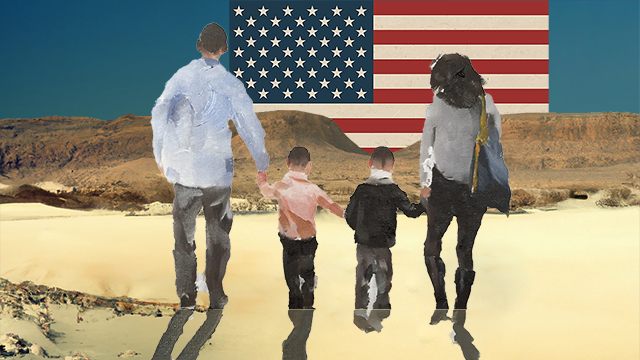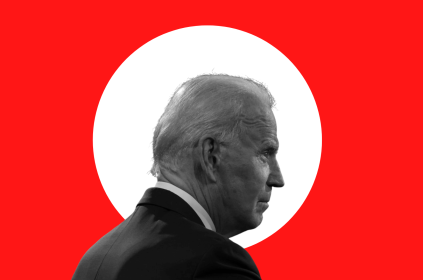Immigration has been a hot topic for many years, and unfortunately, it has often been met with negative sentiments and policies. This is a shame because immigrants can be an incredible asset to any country, bringing new ideas and perspectives as well as much-needed cultural diversity. Unfortunately, politicians have often used xenophobia, prejudice, and discrimination to garner popular support for their positions on immigration. Let’s explore the common misconceptions about immigration, how these policies affect everyone – immigrants and non-immigrants alike – and how we can work together to create a more positive future for our country.
Common Misconceptions About Immigration
One of the most pervasive myths about immigration is that it takes away jobs from native citizens. This simply isn’t true; in fact, research has shown that immigrants tend to create jobs when they move into an area. Immigrants have also been shown to increase wages overall by introducing new skills and knowledge into the workforce. Other false claims regarding immigration include that they are a drain on public resources or that they are responsible for increased crime rates – again, these statements have no basis in reality.
Moving Towards Positive Change
It’s important to acknowledge the negative impact of discrimination and prejudice on immigrants if we want to move towards positive change in our country. We must work together to ensure everyone is treated fairly regardless of their national origin or cultural background. We should support programs aimed at educating people about immigration issues so that we can better understand each other’s perspectives and experiences. Additionally, we can change perceptions through art, music, literature, and other forms of culture exchange. Finally, raising awareness about the benefits that can come from welcoming immigration will go a long way towards creating a more positive future for our country.
In an era of increasing political divisiveness and xenophobia, the rise of conservative anti-immigration rhetoric is not surprising. Despite the fact that immigration can provide new, diverse perspectives, skills and experiences which are often necessary for economic and social growth of a nation, many politicians have chosen to use fear-mongering tactics to galvanize populism by scapegoating immigrants for any number of challenges their nations might face. This has lead to an upending of laws regarding citizenship and borders which have caused untold suffering, loss and human rights abuses. The urgency to reduce or eliminate immigration will only harm a nation’s prosperity in the long term leaving few winners in its wake.
Despite strong evidence that policies like preventing immigrants from entering the US are damaging to citizens of the country, many remain adamantly in favour of them. This kind of policy has not only been found to reduce investment in American labour markets but also to cause a frightening drop in wages for both immigrant and domestic workers. Undocumented individuals make up an estimated 13% of the national workforce yet contribute nearly $12 billion in taxes annually, indicating their potential contribution if permitted to work legally. Such policies continue to be opposed by both humanitarian organizations and those with economic interests, yet the debate remains contentious among citizens who feel threatened by immigration expansion.
Politicians are known to gain votes from constituents by preying on their deepest fears and concerns. Unfortunately, this often involves creating an “us vs them” dynamic where the politician is claiming a particular group of people as outsiders or criminals. It’s no surprise that xenophobia, prejudice, and discrimination are three concepts often used in a political context–they can be powerful tools for seeking popular support. However, these tools can cause immense harm to the communities they target and can lead to dangerous consequences if not used responsibly. To protect everyone’s rights, politicians must make sure they are held accountable for any use of xenophobia, prejudice, or discrimination in their platforms and campaigns.
One of the most pernicious myths surrounding immigration is rooted in jobs – namely, the notion that immigrants are taking away jobs from natives and pushing down wages. This is simply not true: research has consistently debunked this false narrative. In actuality, immigrant workers complement rather than compete with native-born workers, meaning that they fill critical gaps in certain labor markets and industries. Furthermore, higher concentrations of immigrants often result in greater job opportunities for native-born workers as well. So while it is easy to fall into believing stereotypes of immigrants driving down wages and displacing native-born workers, the reality is much more complicated. Therefore we should reject harmful myths about immigration and instead look to facts and evidence to better understand our labor markets and immigration policy.
Immigration has been a hot-button issue in the United States for years and it’s time that we create change. Discrimination and prejudice against immigrants has created barriers to success – we need to recognize this, prioritize the rights of immigrants and their contributions to our nation, and work together to build a future of respect, fairness, and understanding. Creating an equitable system where everyone is treated with dignity regardless of national origin or cultural background requires collective action from individuals and policymakers alike: aggressive policies must be adopted so civil rights are protected; prejudices must be acknowledged and addressed rather than pushed aside. With these steps taken, a positive future for our country is within reach.
Why a Positive Future for Our Country Depends on Fair Treatment for All ?
Anti-immigration policies are harmful not just for immigrants but also for non-immigrants alike because they lead to heightened fear and mistrust among different groups in our society. We need to focus on creating more understanding between different cultures so that everyone feels welcome in our country regardless of their nationality or religious beliefs. A positive future depends on treating everyone fairly regardless of where they come from – only then will our nation truly thrive! 🇺🇸
















